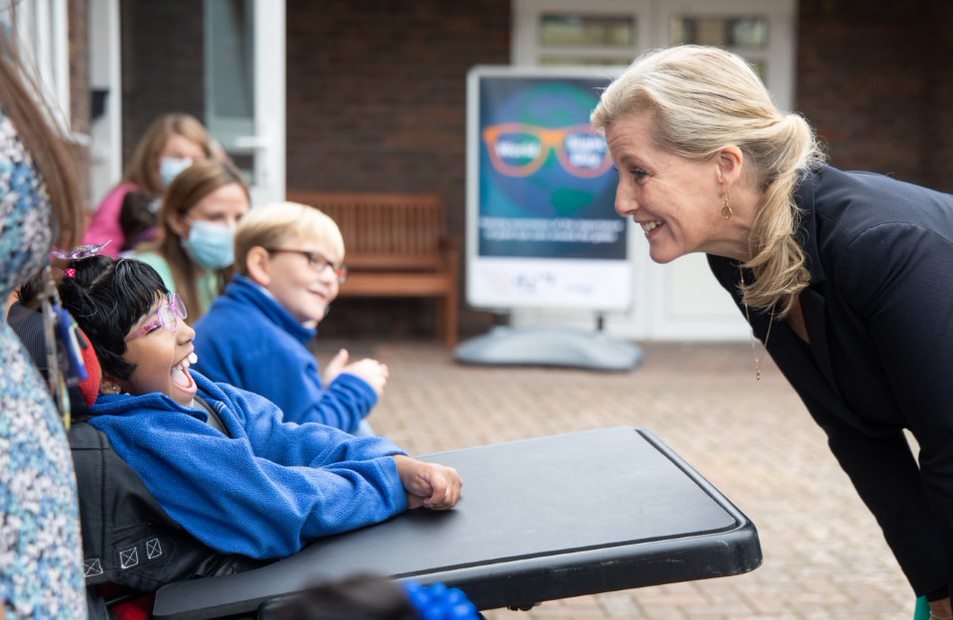Countess visits London Special School

HRH the Countess of Wessex visits Perseid School
To mark World Sight Day (14 October), International Agency for the Prevention of Blindness (IAPB) global ambassador, Her Royal Highness the Countess of Wessex, visited Perseid School in London to see children having their eyes tested by SeeAbility, a UK charity specialising in supporting people with learning disabilities/autism and sight loss.
The countess is supporting the #LoveYourEyes campaign, being run by the IAPB to encourage people to book a sight test.
SeeAbility’s work has highlighted that children with learning disabilities are 28 times more likely to have a sight problem than other children – and the charity’s eyecare work has revealed half of children in special schools will have a problem with their vision.
SeeAbility carried out its first sight test at Perseid school in 2013. Since then, findings from nearly 1,000 sight tests proved that half of all special school students have a problem with their eyes and at least one third need glasses – yet nearly half have never received any eyecare – the charity explained.
As a result of SeeAbility’s groundbreaking work, Public Health England recommended that special school students should have their eyecare and glasses provided in the familiar, convenient setting of their school – and this year, NHS England committed to providing an eyecare and glasses service for the estimated 120,000 children who attend a special school in England.
Lisa Hopkins, CEO of SeeAbility, said: ‘We’re thrilled that the Countess of Wessex is helping raise awareness of the importance of eye tests by visiting Perseid School to witness SeeAbility’s eyecare team carrying out eye tests on the children.
“The IAPB’s important campaign is highlighting the fact that globally, eye health has reached a new low during the pandemic.
“No one is ‘too disabled’ for a sight test – and SeeAbility’s eyecare programmes are proving that bringing eyecare to children with learning disabilities in their school environment is transformative.
Thinking creatively about the way eyecare services are delivered can mean everyone gets a more equal right to sight. And at a time when the pandemic and worldwide lockdowns lead to more time spent on screens, less time spent outdoors, and missed sight tests, that has never been more important,” added Lisa.